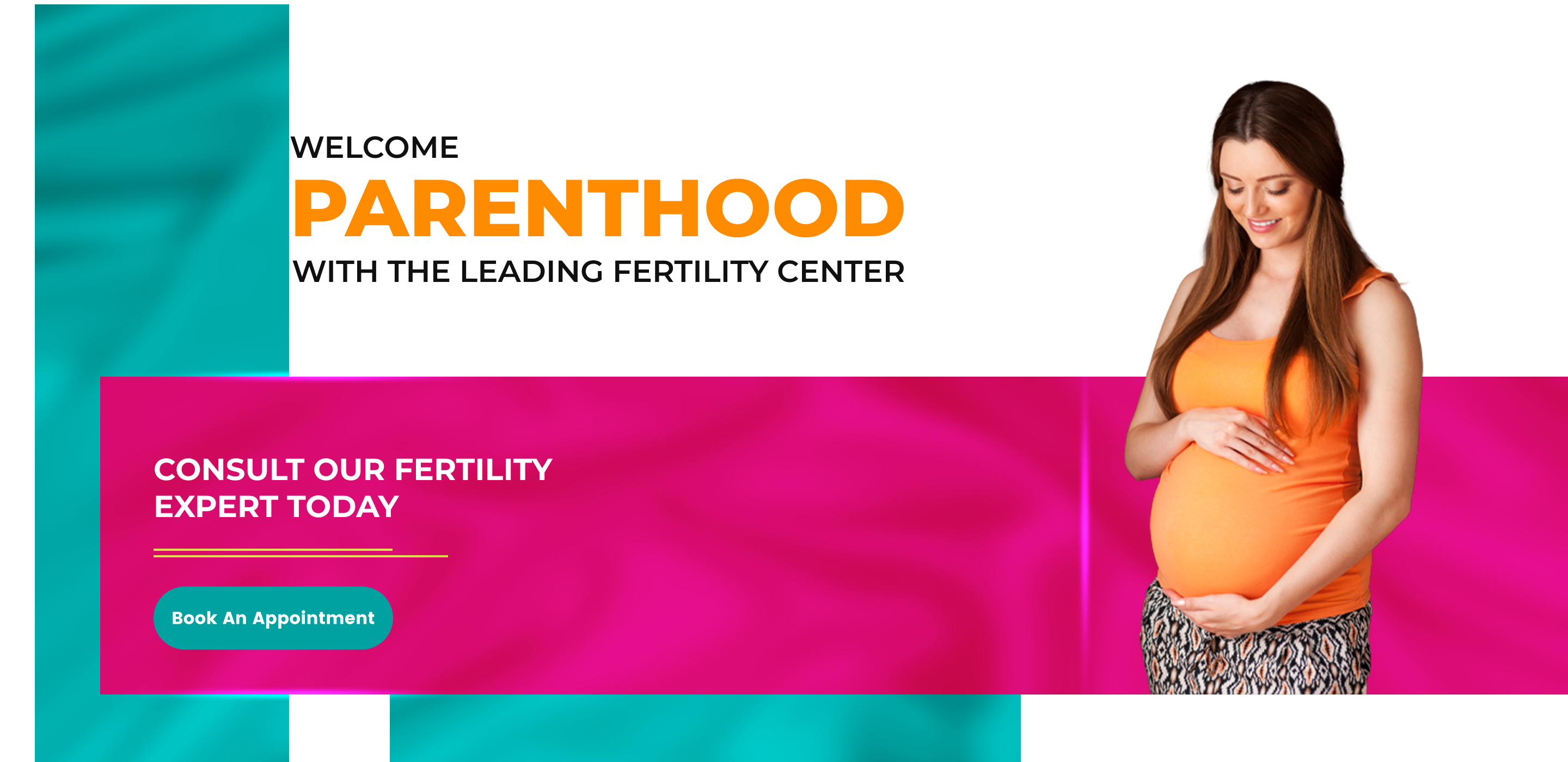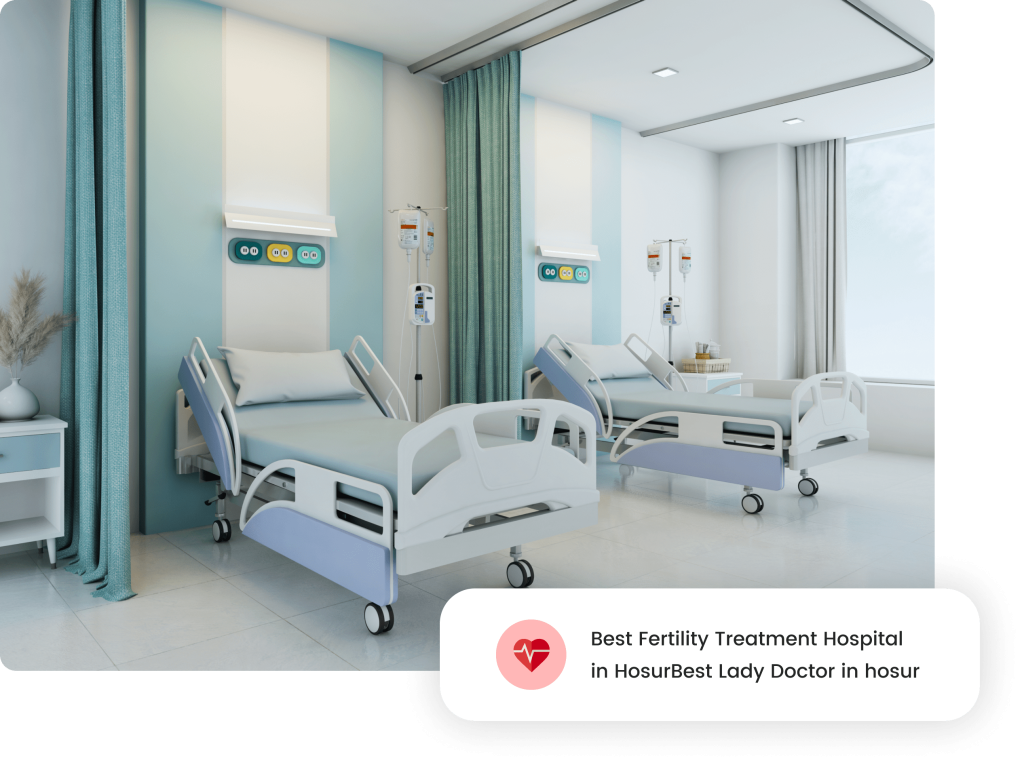
Services & Treatments
At Vijay Srishti, we understand the emotional and physical challenges that individuals and couples face when trying to conceive a child. Our dedicated team of fertility specialists is committed to providing you with compassionate care and advanced treatments to help you realize your dream of parenthood.
OUR SPECIALITIES
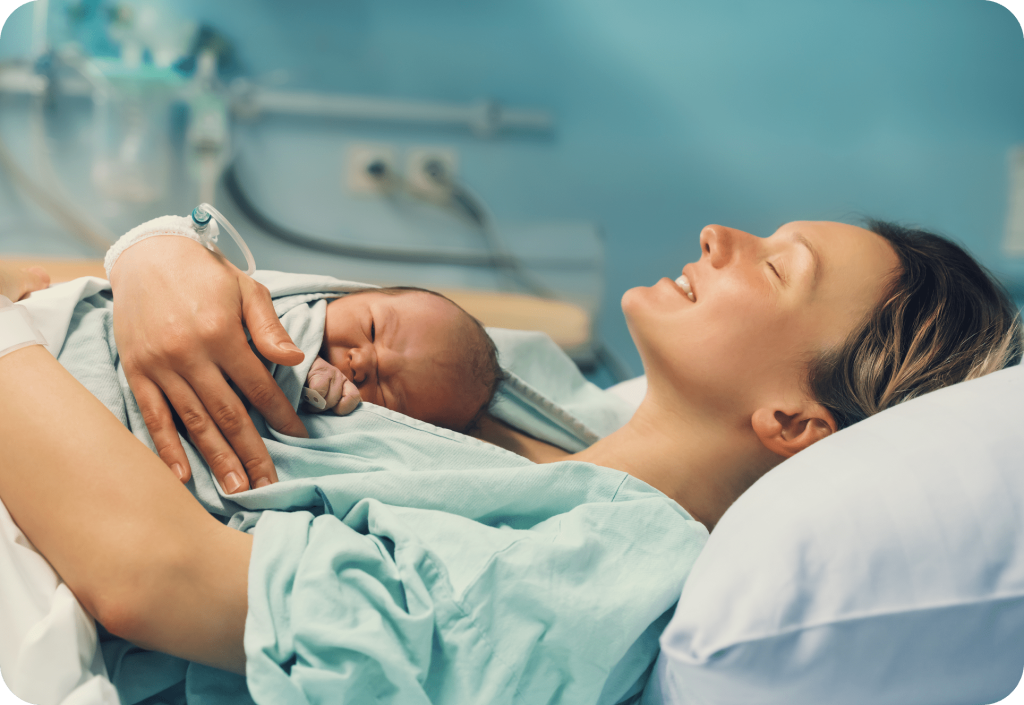

IUI
(Intrauterine insemination)
- Want to Enjoy your parentage? Vijay Srishti is here...
Couples with infertility often start treatment with IUI involves placing a washed sperm directly into the woman’s uterus during the fertile window. This can be done as part of a natural cycle or, more often, in combination with medications (like clomiphene citrate or letrozole).
It is important to note that many women undergoing IUI are given hormones or medication in order to induce ovulation or to increase the number of eggs that are ovulated each month. This increases a couples chances of having twins or multiples. Although many couples undergoing fertility treatment welcome the idea of having twins or even more babies, in reality, having multiples will introduce complications for the mother and the babies.

IUI
(Intrauterine insemination)
- Want to Enjoy your parentage? Vijay Srishti is here...
Couples with infertility often start treatment with IUI involves placing a washed sperm directly into the woman’s uterus during the fertile window. This can be done as part of a natural cycle or, more often, in combination with medications (like clomiphene citrate or letrozole).
It is important to note that many women undergoing IUI are given hormones or medication in order to induce ovulation or to increase the number of eggs that are ovulated each month. This increases a couples chances of having twins or multiples. Although many couples undergoing fertility treatment welcome the idea of having twins or even more babies, in reality, having multiples will introduce complications for the mother and the babies.

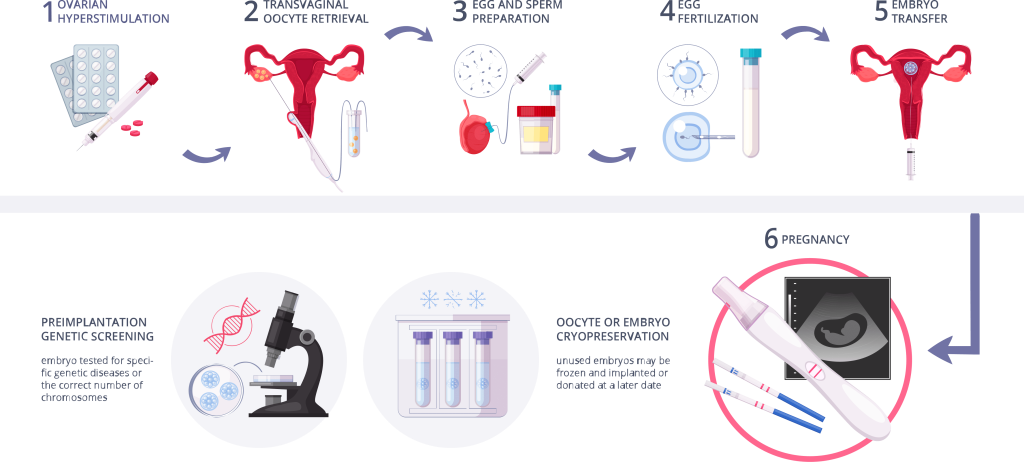
Benefits of IUI
IUI is less invasive and less expensive than many other assistive reproductive technology procedures (e.g. there is no need for surgical oocyte retrieval which requires anesthesia). Therefore, the use of IUI leads to better compliance and it is cost effective also.

Success of IUI
Success rates following IUI diminish with the advancement of age especially after 40. This success rate also decreases in women who did not get positive result after three consecutive cycles of IUI. Therefore, a discussion with the fertility specialist will guide you to an individualized success.
Success of IVF
The success of the IVF treatment can vary based on the parameters in the IVF cycle. It will vary from couple to couple and at different stages of the cycle. Therefore, it is necessary that the entire process is discussed with the couple, in minute details and the couple is made to understand the success chances of the procedure for their particular case.
The success of the IVF treatment can vary based on the parameters in the IVF cycle. It will vary from couple to couple and at different stages of the cycle. Therefore, it is necessary that the entire process is discussed with the couple, in minute details and the couple is made to understand the success chances of the procedure for their particular case.
Success rate is as high as 26% in case of multiple follicles and as low as 6% with one follicle. Higher the sperm count, higher is the success rate. The overall success rate seems to be between 15-20 percent per cycle. 23-30 percent will be the rate of multiple gestation pregnancies.
What is the best timing for IUI? Ideally, an IUI should be performed either 6 hours before or 6 hours after the ovulation. If the reason is male infertility then IUI should be performed 6 hours after the ovulation. Otherwise, the chances of fertilization are higher with the insemination done 6 hours prior to the ovulation with the sperm already waiting for the egg. IUI is best timed 36 hours after the human chorionic gonadotrophin injection. However, it may vary from 20 to 42 hours. If two IUI’s are planned then a spacing of 12 hours is required post HCG Some doctors also base the timings on Luteinizing Hormone Surge After the egg is released it is viable only for 24 hours maximum so after the surge is detected two inseminations are planned between 12 and 48 hours.

- age of the patient
- cause of infertility
- If using drugs for Fertility ?
Frequently Asked Questions
It just feels like as if you are getting a Pap smear done .So it is painless for some women. Some cramps may be felt later on but they might be due to ovulation also. It might cause discomfort at cervix.
The washed sperms can survive for 24- 72 hours; however, their potency decreases after 24 hours. Another feature of sperm is that it swims near the fallopian tube so the ideal time for fertilization is 6-12 hours after the release of egg. As the eggs, viability is shorter so it is better to combine IUI with intercourse so that sperms, which usually live for 2-3 days and at times to 5 days in fertile mucus, have a better access to ovum after ovulation.
Usually the patient is mobile after 15-30 minutes after the procedure. As the opening of the cervix is closed.
No. The sperms are injected inside the uterus, and the uterus opening is closed. However, there may be wetness due to the leakage of cervical mucus when the catheter is put in.In some cases a cervix cap is applied otherwise in majority, this is not required.
Definitely, you would consider the cost. Still at least 3-4 times on Clomid and then 3-4 times injectable with good ovulatory cycles should be preferred with well-timed IUI and thereafter if success is not achieved then go for IVF.
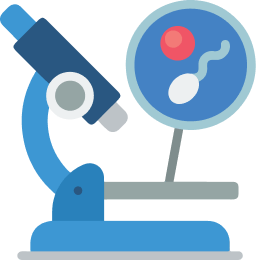
IVF
(In vitro fertilization)
Transforming Dreams, Unlocking the Miracle of Life
IVF or In-Vitro Fertilization procedure is carried out for couples that cannot naturally conceive despite treatments. IVF is an assisted reproductive technique in which eggs are collected from the mother and fertilized with sperm in a specialized laboratory. Being a Fertility Center, Vijay Srishti’s team understands the hope and anticipation that goes behind each of the procedures we perform.
With empathy and care being our cornerstones when it comes to fertility treatments, the doctors at Vijay Srishti Fertility Center help couples looking to conceive identify their best possible options including IVF. Our IVF success rate is one of the highest and we have had the immense joy of bringing new members into patients’ families. Learn more about IVF from our doctors.


IVF
(In vitro fertilization)
Transforming Dreams, Unlocking the Miracle of Life
IVF or In-Vitro Fertilization procedure is carried out for couples that cannot naturally conceive despite treatments. IVF is an assisted reproductive technique in which eggs are collected from the mother and fertilized with sperm in a specialized laboratory. Being a Fertility Center, Vijay Srishti’s team understands the hope and anticipation that goes behind each of the procedures we perform.
With empathy and care being our cornerstones when it comes to fertility treatments, the doctors at Vijay Srishti Fertility Center help couples looking to conceive identify their best possible options including IVF. Our IVF success rate is one of the highest and we have had the immense joy of bringing new members into patients’ families. Learn more about IVF from our doctors.
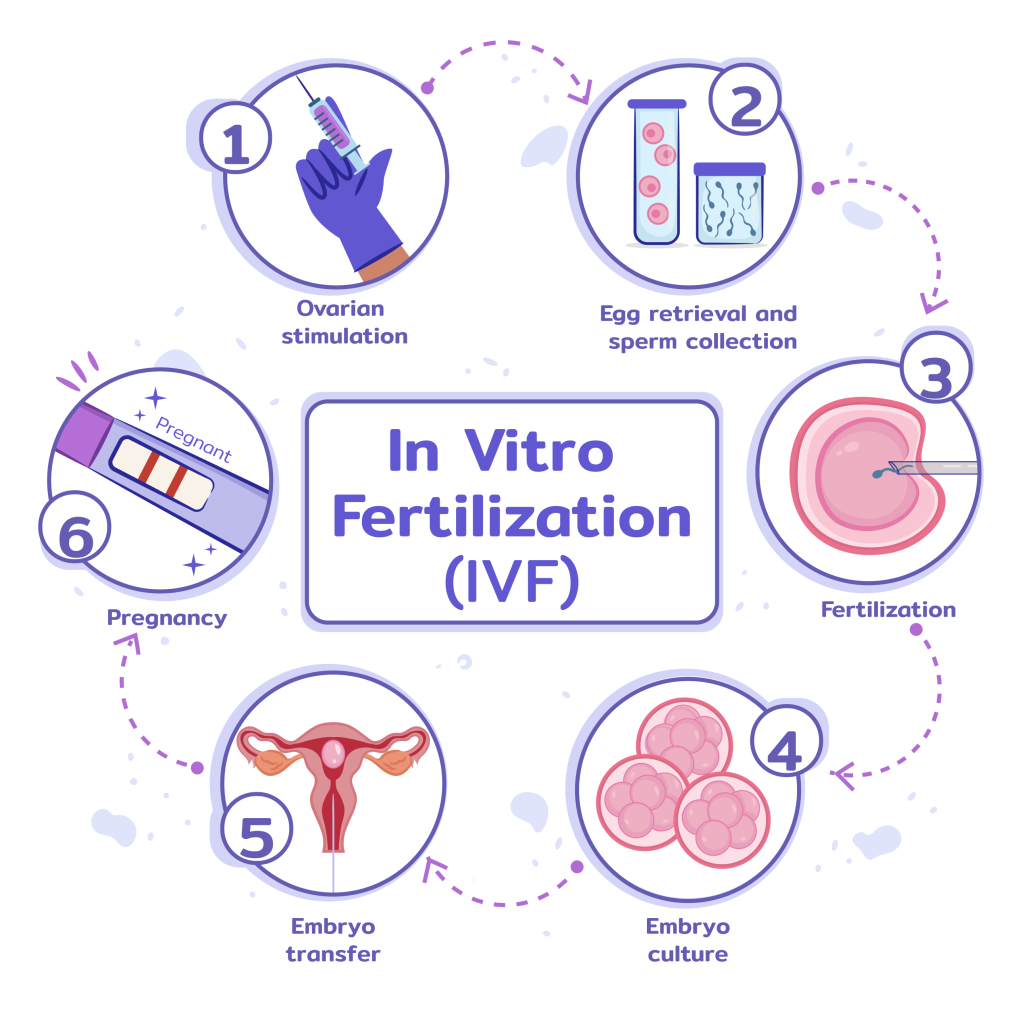
Benefits of IVF
1. IVF is the most reliable of all other infertility treatments. It also works in cases where infertility diagnoses includes blocked fallopian tubes, male infertility, reduced ovarian reserve or advanced maternal age.
2. IVF treatment is not restricted to couples only. It is useful in case of surrogacy, single parent or same sex couples also.
3. IVF allows the usage of donated eggs or sperms where eggs and sperms are manually fertilized creating a viable embryo
4. IVF also allows cryopreservation, i.e. freezing eggs and sperms for future use. It allows the patient to choose a window when he or she wants to conceive the baby.
5. IVF may also increase the chances of having a healthy baby in parents with genetic conditions such as down syndrome, sickle cell anemia, cystic fibrosis or Tay Sachs disease that can be passed on to the baby by using Pre implantation genetic testing.
Success of IVF
The success of the IVF treatment can vary based on the parameters in the IVF cycle. It will vary from couple to couple and at different stages of the cycle. Therefore, it is necessary that the entire process is discussed with the couple, in minute details and the couple is made to understand the success chances of the procedure for their particular case.

Parameters Including :
- Age
- Reproductive History
- Number of Eggs or Sperms harvested
- Number of healthy embryos formed
- Chances of embryo implantation in the uterus
- Cause of Infertility
Lifestyle Choices
Cost of IVF
The IVF costs offered by Vijay Srishti are affordable and reasonable for all sections of the population. However, the cost of treatment will vary depending on the IVF cycle for every couple. Vijay Srishti will provide a personalized treatment plan for all couples, which will determine the cost of treatment.
Frequently Asked Questions
The chances of a couple, with no infertility issues, conceiving in a month are about 20%. This is called the natural pregnancy rate. That means that more than 90% of couples become pregnant after at least a year of trying. Therefore, usually a couple will seek advice from a fertility specialist, if after a minimum of 1 year of trying; they are not able to get pregnant.
It is recommended that the 10% couples, who cannot conceive naturally after a year, should seek fertility advice. Specifically, women in their thirties are encouraged to have a medical evaluation and seek medical advice after trying and women in their forties should seek a fertility doctor after deciding to have a baby.
One IVF cycle should take roughly about 2-3 months. The process takes about 4-6 weeks prior to the egg retrieval process. The embryos, if fertilized, will be implanted after 1 week roughly. In addition, it is advisable to wait for at least 2 weeks to wait for a pregnancy test. However, not all patients are successful in the first attempt. It is common for the patients to go through multiple IVF cycles before conceiving.
Yes, while undergoing a cycle of IVF treatment, there are certain restrictions that a doctor will recommend you to follow.
- No smoking: If at all, the couple or either of the partner smokes, it is advisable for them to stop smoking at least 3 months before the treatment begins.
- No Drinking: Patients are advised not to consume alcohol during the course of treatment, and if pregnant, until the childbirth.
- Only prescribed medications: If you are on any medications, then you should consult with your fertility doctor regarding the same before beginning the treatment. Certain medications may react have contraindications and it is best to consult your doctor before continuing with the curse of medication.
- No vigorous exercise: It is best to avoid intense physical exercises such as aerobics or weight training, or running during the treatment. However, light exercises such as walking is recommended during the treatment and pregnancy.
- No supplements: Herbal supplements should be completely avoided during the treatment process.
Once the treatment is successful and the pregnancy is confirmed, you will have to meet your fertility specialist for a few blood tests and eventually for ultrasounds to ensure that your pregnancy is continuing smoothly. Once the heartbeat of the fetus is checked and verified, you will be referred to a gynecologist and obstetrician for further follow-ups.
If the IVF cycle is not a success, the couple is advised to wait for at least for 2 full menstrual cycles before resuming another cycle of IVF. They may also be recommended to go for additional tests and procedure based on their results of previous IVF attempt.

ICSI
(Intracytoplasmic sperm injection)
Best ICSI Hospital In Hosur, Dharmapuri, Krishnagiri, Tirupattur
Being a Fertility Center, Vijay Srishti’s team understands the hope and anticipation that goes behind each of the procedures we perform. With empathy and care being our cornerstones when it comes to fertility treatments, the doctors at Vijay Srishti Fertility Center help couples looking to conceive identify their best possible options including IVF-ICSI. Our success rate is one of the highest and we have had the immense joy of bringing new members into patients’ families. Learn more about ICSI from our medical experts.
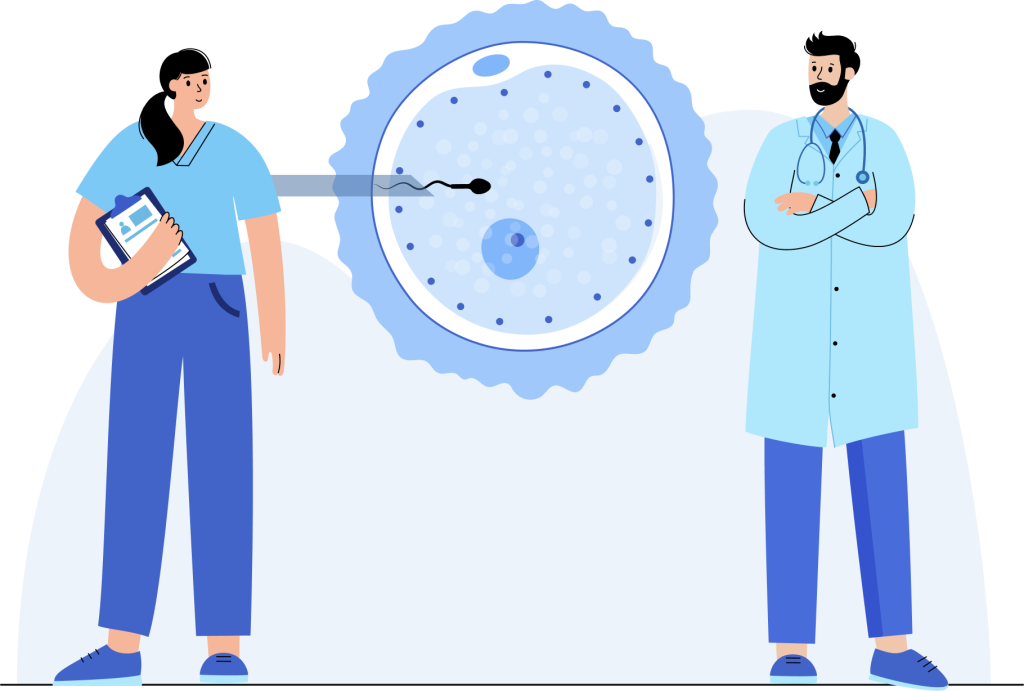

ICSI
(Intracytoplasmic sperm injection)
Best ICSI Hospital In Hosur, Dharmapuri, Krishnagiri, Tirupattur
Being a Fertility Center, Vijay Srishti’s team understands the hope and anticipation that goes behind each of the procedures we perform. With empathy and care being our cornerstones when it comes to fertility treatments, the doctors at Vijay Srishti Fertility Center help couples looking to conceive identify their best possible options including IVF-ICSI. Our success rate is one of the highest and we have had the immense joy of bringing new members into patients’ families. Learn more about ICSI from our medical experts.
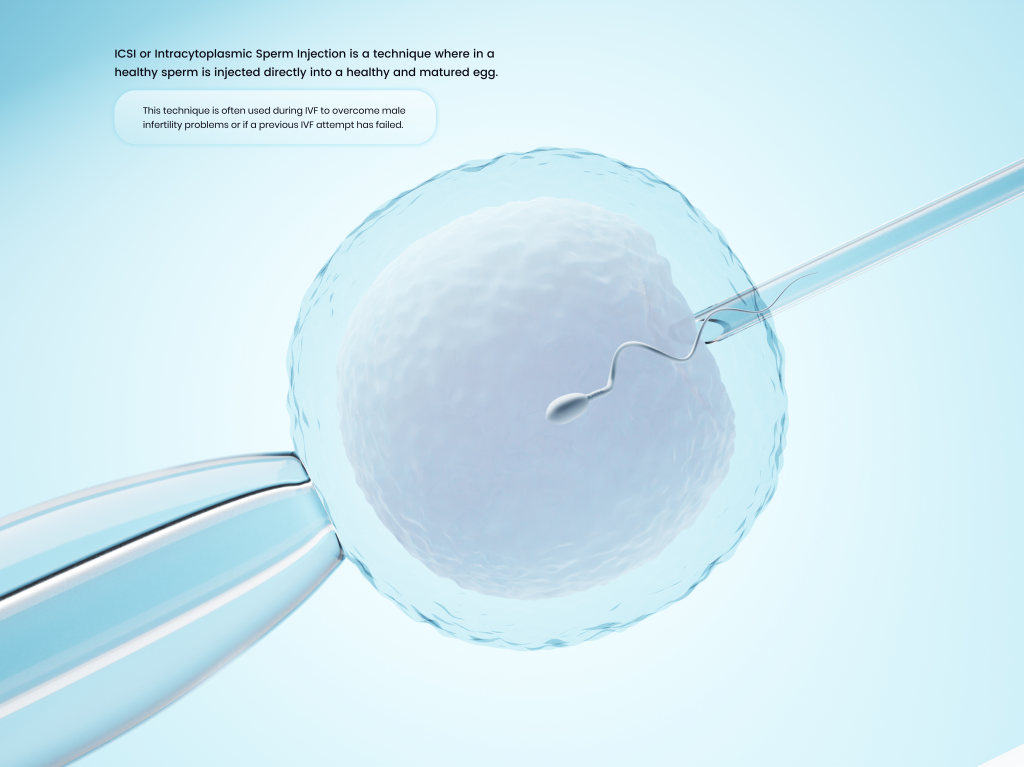
ICSI or Intracytoplasmic Sperm Injection is a technique where in a healthy sperm is injected directly into a healthy and matured egg.

Benefits of ICSI
Intracytoplasmic Sperm Injection technique enhances the quality of sperm in terms of mobility and is a helpful procedure during the IVF treatment.
Other benefits of ICSI are synchronous with those of IVF.
Success of ICSI
The success of ICSI is highly dependent on factors such as age of the couple and sperm quality. Along with these factors, factors affecting treatment of IVF- Age, Reproductive History, Number of Eggs or Sperms harvested, Number of healthy embryos formed, Chances of embryo implantation in the uterus, Cause of Infertility, Lifestyle Choices, may also be factors transpiring the success of the procedure. Before any procedure or medical examination, it is highly advisable that the couple seeks a proper medical examination and course of treatment at our fertility center.
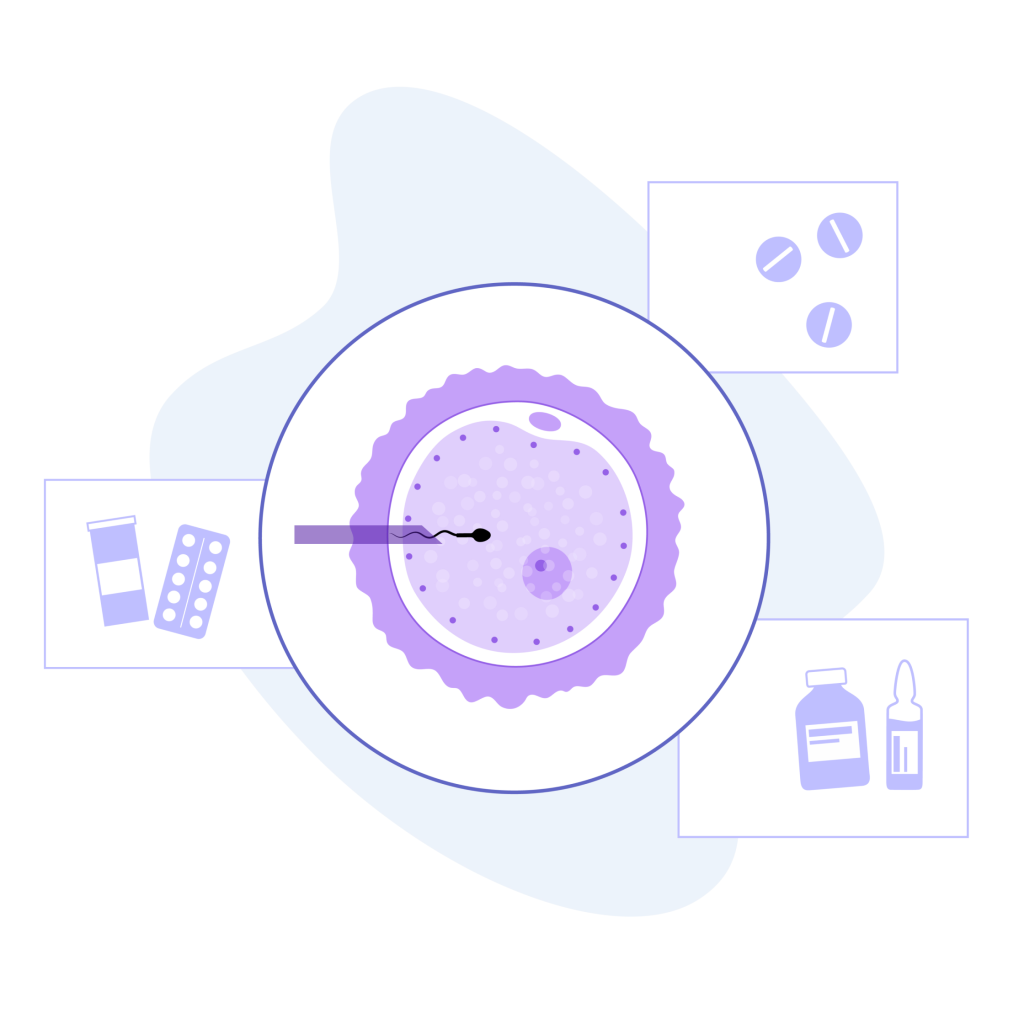
Cost of ICSI
The cost of the ICSI treatment is reasonable and affordable but is dependent on a few factors like the type of infertility and on the requirements of further assisted treatments.
Cost of ICSI
The cost of the ICSI treatment is reasonable and affordable but is dependent on a few factors like the type of infertility and on the requirements of further assisted treatments
Frequently Asked Questions
Yes, ICSI has a few risks that the patient needs to be aware of before the procedure. These are:
- A small number of eggs (not more than 5%) are at a risk of damage because a needle is inserted during the procedure
- There is a slight risk (0.8%) of conceiving a baby with abnormalities associated with sex chromosome.
- Chromosomal abnormality may increase the chances of
- Miscarriage
- Heart defects in infants
- Cognitive disabilities in children
- Children born with fertility problems
It is recommended that the 10% couples, who cannot conceive naturally after a year, should seek fertility advice. Specifically, women in their thirties are encouraged to have a medical evaluation and seek medical advice after trying and women in their forties should seek a fertility doctor after deciding to have a baby.
No, there is no difference between ICSI and non ICSI embryos. The overall embryo quality is same in comparison. Similarly, they do not cause any difference in pregnancy rates as well.
Apart from regular medical and blood tests, the following test are needed to be performed before the ICSI procedure is done:
- A testicular biopsy is needed if the male is facing problems with sperm production. In testicular biopsy, a small piece of the testicular tissue is extracted and studied.
- Blood tests are required to check for hormone levels.
- Genetic testing may be required with couples where there is even a slightest possibility of passing on an inheritable genetic condition to the baby. Genetic testing is done usually with males who have poor sperm characteristics as fertilizing the eggs with these sperms holds a risk of a genetic condition to the baby.
In a conventional IVF (in vitro fertilization) treatment, about 2 lakh sperms are placed in a petri dish along with the egg for the fertilization to take place. In an ICSI (Intracytoplasmic Sperm Injection), a single sperm is injected into the center of an egg with the help of a needle and vial.
If you have undergone the ICSI treatment in the past and the fertilization was not successful due to reduced quality of eggs, immature eggs, or poor quality of sperms in terms of morphology, ICSI might not be very helpful for you.
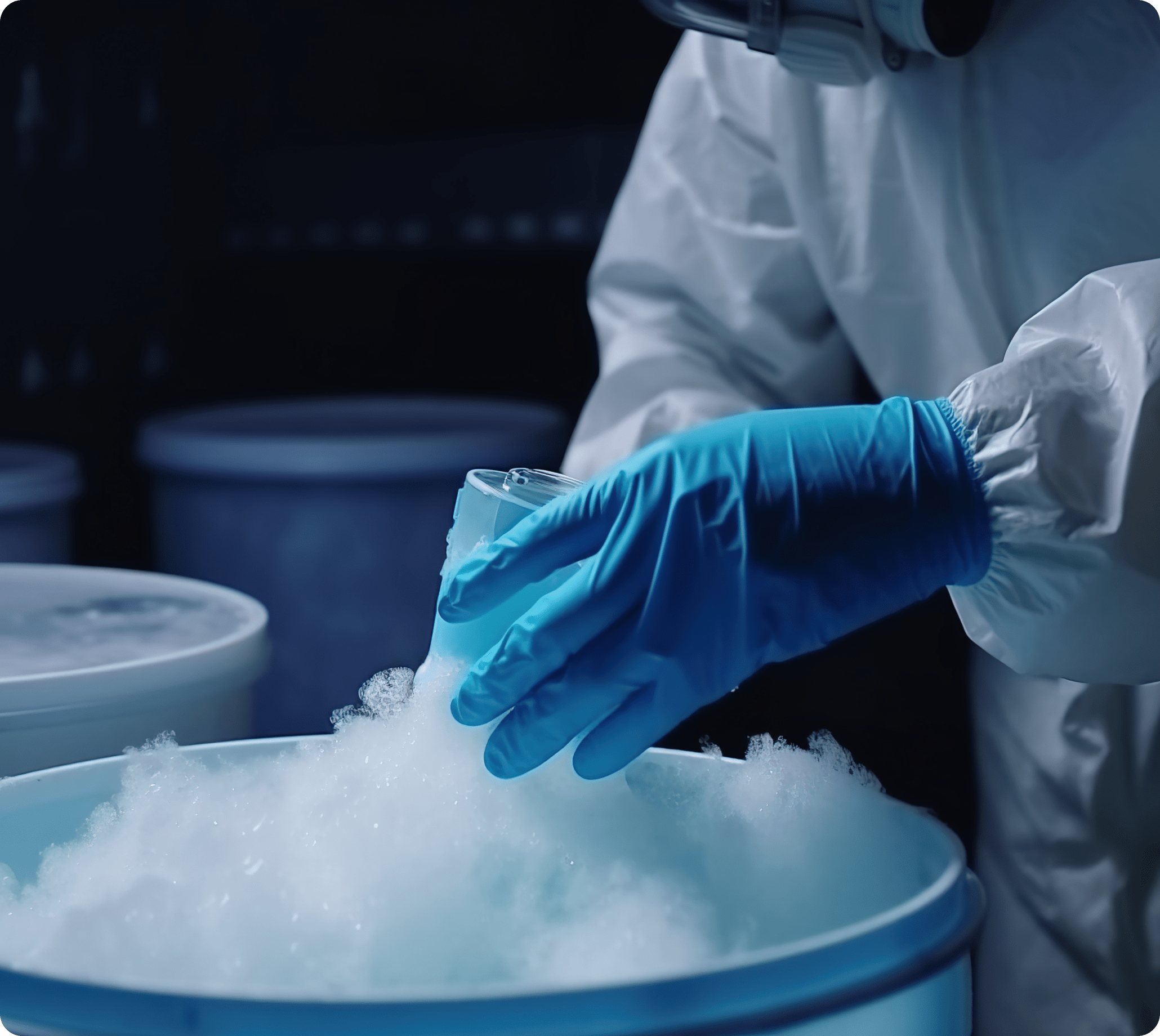
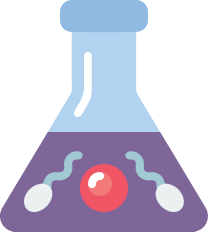
Cryopreservation
Best Lady Doctor In Hosur | Gynecologist & Pregnancy Hospital Hosur
We, at Vijay Srishti Fertility Center, understands the hope and anticipation that goes behind each of the procedures we perform. With empathy and care being our cornerstones when it comes to fertility treatments, the doctors at Vijay Srishti Fertility Center help couples looking to conceive identify their best possible options including Cryopreservation of sperms and embryos. A vast majority of embryos/eggs/sperms survive the process of thawing. However, it does not guarantee that all of them will lead to a pregnancy in the future. Many of these cells and naturally abnormal. At Vijay Srishti Center, the medical experts take every single precaution that is there and ensure that the success rate for this procedure is as high as possible. The caring team at our Center will help you with every step for the procedure and take care of all your needs. We ensure to bring the immense joy of bringing new members into patient’s families. Learn more about Cryopreservation from our doctors.
WHY CRYOPRESERVATION?
You can consider cryopreservation if-
1. You have medical conditions that can affect your chances of being fertile. These conditions may include genetic diseases, autoimmune disorders or gender diversities.
2. You are undergoing medical treatment for any underlying disease. For example, if you are undergoing treatment for cancer, radiation and chemotherapy may reduce your fertility and hence, cryopreserving the eggs before treatment commences will allow you to have children later.
3. If you are undergoing the process of IVF you may choose to freeze your cells or embryos for later use or donation.
4. If you are not ready for a child at the moment but wish to bear one in future, you can get your eggs cryopreserved for future use.
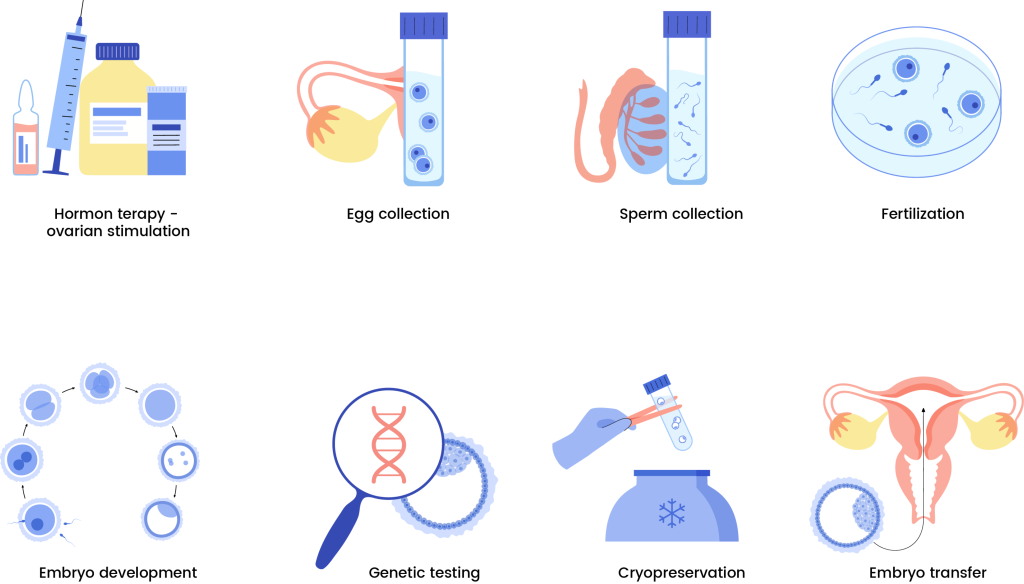
COST OF CRYOPRESERVATION
Apart from the cost of the process, additional costs incurred will be annual storage fees and embryo transfer costs when they will be used in the future. Vijay Srishti will offer you affordable financial plans for the procedure to be carried out. Contact us for any further information.
Frequently Asked Questions
Acolorless and clear liquid at temperatures as low as -320F or -196C, used to store embryos as well as eggs and sperms, for long durations, is known as liquid nitrogen.
The IVF centers have specialized cryopreservation tanks that are designed specifically to store the embryos and sperms. Some patients may also prefer national storage banks to store their eggs and embryos for a long term.
All specimens are frozen either individually or in a group.The sperms and embryos are well labelled and catalogued to avoid any confusion.
To maintain the safety and security of the cryopreservation tanks:
- Daily quality checks are done.
- Level of liquid nitrogen is physically inspected
- Tanks are topped off once a week to ensure that every sample gets an ideal environment.
- Alarm systems are attached to our tanks so that the staff is alerted in case of emergency.Alarm system also has an internal battery emergency backup.
Once the embryo is thawed for transfer, it regains its strength and is as fresh as it was before so it has same chances of pregnancy. So, long term storage does not have any negative effect on embryo viability.

PESA and TESA
Best Lady Doctor In Hosur | Gynecologist & Pregnancy Hospital Hosur
With a very high and valuable reputation in our field, the Vijay Srishti fertility center has managed to pride itself with achievements in the Fertility and Reproductive niche. We have a proud history of helping couples and people have children of their own with the right amount of investment in technology and compassion along with an expert team of doctors.
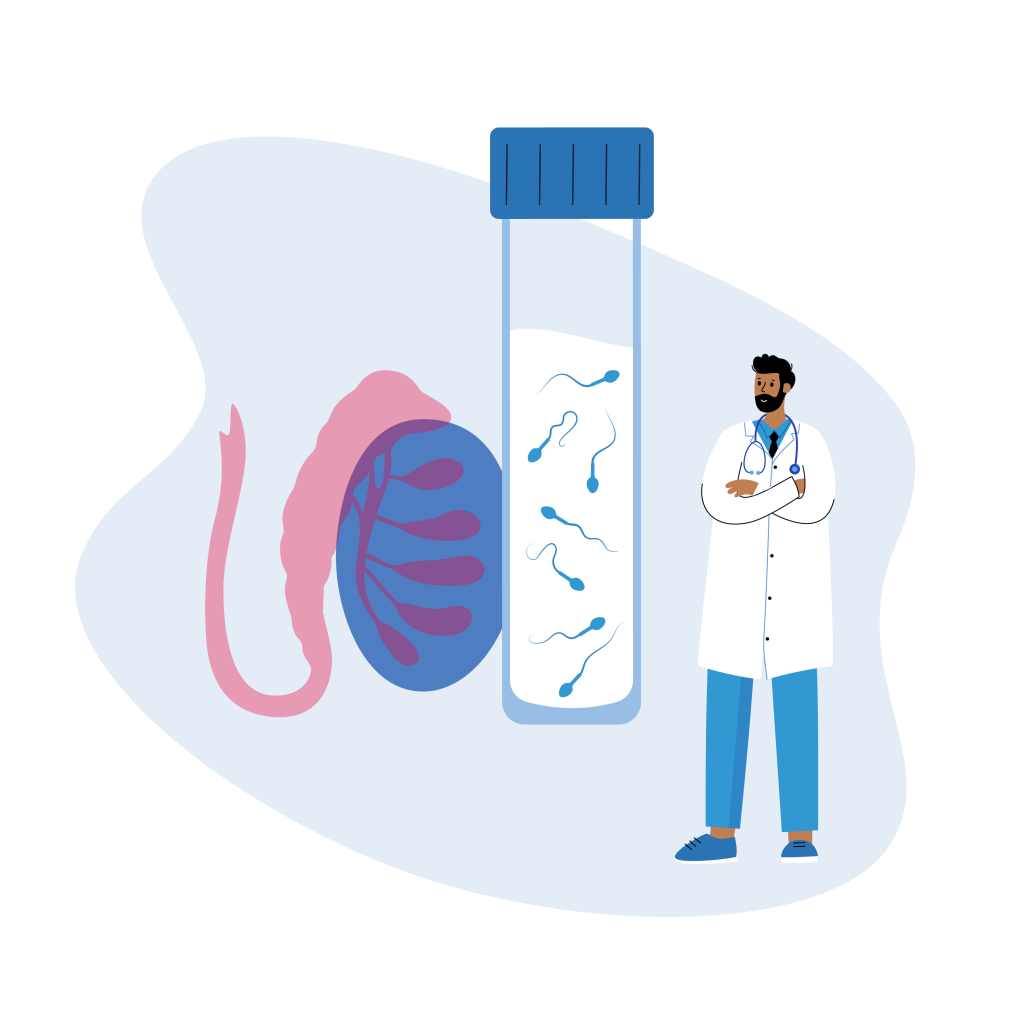

PESA and TESA
Best Lady Doctor In Hosur | Gynecologist & Pregnancy Hospital Hosur
With a very high and valuable reputation in our field, the Vijay Srishti fertility center has managed to pride itself with achievements in the Fertility and Reproductive niche. We have a proud history of helping couples and people have children of their own with the right amount of investment in technology and compassion along with an expert team of doctors.

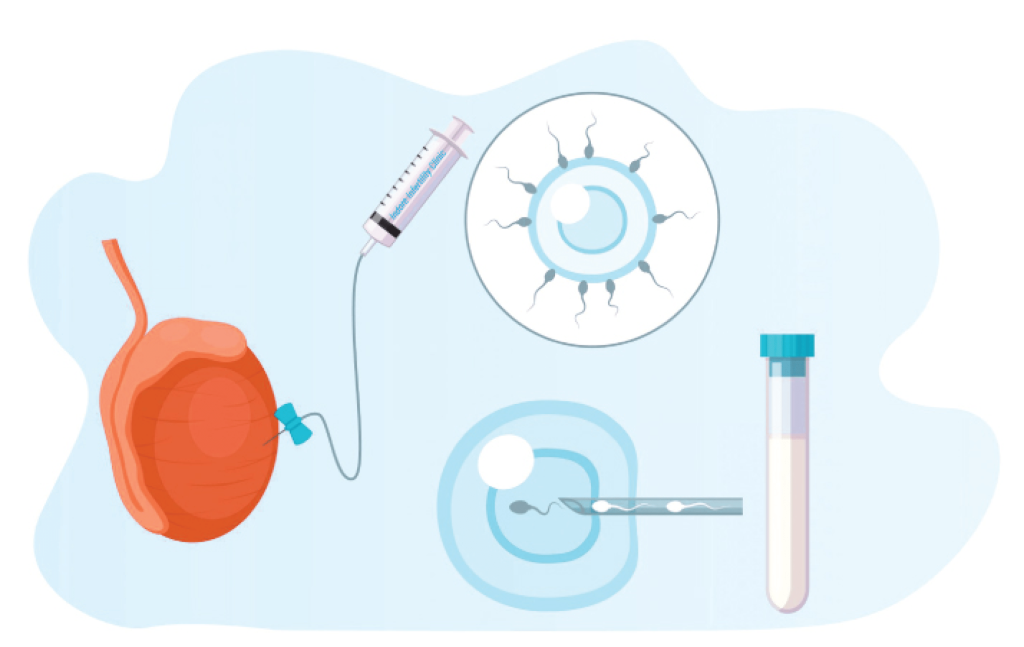
Benefits of PESA AND TESA
Success of PESA AND TESA
PESA and TESA are treatment options available for males suffering from obstructive or non-obstructive oligozoospermia. The success rates of these procedures depend on the individual males. The associated success rate is about 25% for every cycle of treatment.

Success of PESA AND TESA
PESA and TESA are treatment options available for males suffering from obstructive or non-obstructive oligozoospermia. The success rates of these procedures depend on the individual males. The associated success rate is about 25% for every cycle of treatment.
HOW PESA AND TESA IS PERFORMED?
The procedure of TESA and PESA are given below:
PESA
- PESA is performed under local anesthesia i.e. anesthetics are injected directly into the scrotum to make the area numb. This is done to avoid any pain during the procedure.
- The vas deferens is located.
- A small needle is inserted into the vas deferens or epidydimis and the plunger is pulled to extract the seminal fluid.
TESA
If no sperm is retrieved through PESA, it indicated that the vas deferens did not have any sperm. And hence TESA needs to be performed to extract the sperm directly from the testis.
A small needle is inserted into the testicles and testicular tissue is aspirated. Sufficient amount of sperm is required for further procedures.
HOW PESA AND TESA IS PERFORMED?
The procedure of TESA and PESA are given below:
PESA
- PESA is performed under local anesthesia i.e. anesthetics are injected directly into the scrotum to make the area numb. This is done to avoid any pain during the procedure.
- The vas deferens is located.
- A small needle is inserted into the vas deferens or epidydimis and the plunger is pulled to extract the seminal fluid.
TESA
If no sperm is retrieved through PESA, it indicated that the vas deferens did not have any sperm. And hence TESA needs to be performed to extract the sperm directly from the testis.
A small needle is inserted into the testicles and testicular tissue is aspirated. Sufficient amount of sperm is required for further procedures.
Cost of PESA AND TESA
At Vijay Srishti Fertility center, we provide these treatments for male infertility at an affordable cost. For more details, kindly contact our experts.

Cost of PESA AND TESA
At Vijay Srishti Fertility center, we provide these treatments for male infertility at an affordable cost. For more details, kindly contact our experts.
Frequently Asked Questions
Treatment with ICSI and PESA have similar success rate as IVF. So this is good for men with oligospermia both obstructive and non-obstructive.
First of all the male partner or husband has to provide a semen sample on the same day of egg collection.Then the sperms are retrieved, specially prepared and individually injected into the eggs.Routine ovulation, induction and egg collection and embryo transfer are then employed.
Males suffering from the following conditions can opt for the following procedures:
- Men who have cystic fibrosis or absent vas deferens.
- Men who had undergone vasectomy.
- Failed vasectomy reversal.
- Men with irreversible genital tract obstruction.
- Men with testicular problems.
- Men with decreased spermatogenesis.
The procedures for PESA and TESA are very similar
PESA: PESA is performed under local anesthesia i.e. anesthetics are injected directly into the scrotum to make the area numb. The vas deferens is located.A small needle is inserted into the vas deferens or epididymis and the plunger is pulled to extract the seminal fluid.The testis is examined to locate any abnormality or blockage in the vas deferens. Before examination, the scrotum is swabbed with a warm antiseptic to prevent infection. The retrieved seminal fluid is checked for sperm motility and shape.The process is repeated until enough sperms are collected.
TESA: If no sperm is retrieved through PESA, it indicated that the vas deferens did not have any sperm and TESA is performed to extract the sperms directly from the testis. A small needle is inserted into the testicles and testicular tissue is aspirated. Sufficient amount of sperm is required for further procedures.
If the male has genetic defects or conditions, it is not advised to have the PESA/TESA procedure


Donors & Surrogacy
Best Lady Doctor, Gynecologist Obstetrician In Hosur, Krishnagiri, Tirupattur
Vijay Srishti Fertility Center has a comprehensive and supportive donor and surrogacy program to assist anyone who needs a donor sperm, egg or embryo or a surrogate mother to carry his or her baby for gestation. The dedicated team at our center provides you all the necessary steps and support with utmost compassion and care.

Donors & Surrogacy
Best Lady Doctor, Gynecologist Obstetrician In Hosur, Krishnagiri, Tirupattur
Vijay Srishti Fertility Center has a comprehensive and supportive donor and surrogacy program to assist anyone who needs a donor sperm, egg or embryo or a surrogate mother to carry his or her baby for gestation. The dedicated team at our center provides you all the necessary steps and support with utmost compassion and care.

WHAT IS DONORS AND SURROGACY PROGRAM
The donor and surrogacy programs essentially has four parts:
- Egg Donation
- Sperm Donation
- Embryo Donation
- Gestational Surrogacy
Procedure of Egg Donation
The egg donation procedure is performed in two main steps:
- Counselling of the Donor
- IVF Cycle
The donor counselling is done for both, the recipient and the donor to consider the legal, social, emotional and psychological aspects of the process which will help the people involved make a healthy and informed decision for their future.
The pregnancy test is carried out after 10-14 days.


COST OF EGG DONATION
The success rate of the egg donation program is directly related to the age of the donor and te number of eggs that have been donated.
What is Sperm Donation?
Sperm Donation is a procedure by which a man donates his semen. The semen is the liquid released during ejaculation and contains the sperms. The donated sperm can help a couple or an individual help conceive a baby. The harvested sperm is injected into a woman’s reproductive organs either with help of IUI or IVF. This use of donated sperm is called third party reproduction
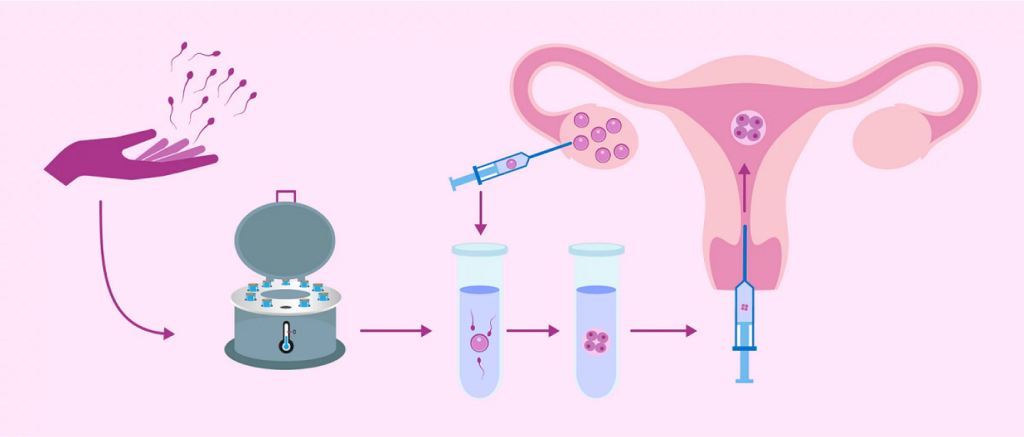
Who should consider donor Sperm?
The reasons why a couple or an individual may choose to get a donor sperm are:
- Male infertility problems in a heterosexual couple
- Single women who want to have a child
- Homosexual couple who want to have a child
- Genetic or Infectious disease in the male sperm
Considering health reasons and for the better, the donor sperm treatment is not advisable for women who are past their age of natural menopause i.e. 51 years. If you are over 40- 42 years old and are considering using a donor sperm, it is also advisable that you use a donor egg.
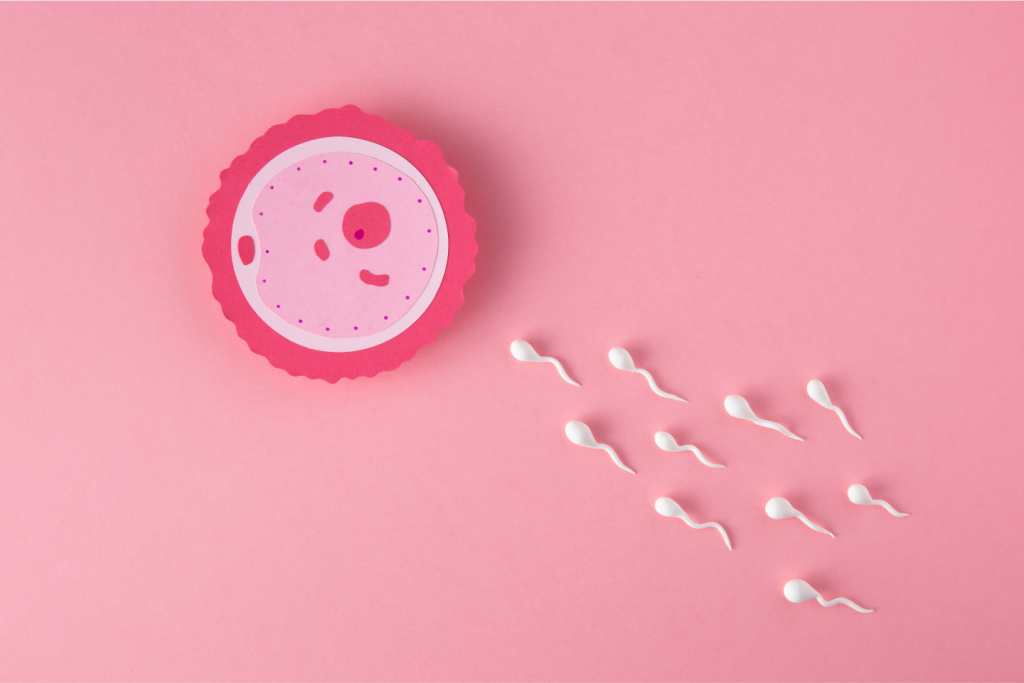
Who should consider donor Sperm?
The reasons why a couple or an individual may choose to get a donor sperm are:
- Male infertility problems in a heterosexual couple
- Single women who want to have a child
- Homosexual couple who want to have a child
- Genetic or Infectious disease in the male sperm
Considering health reasons and for the better, the donor sperm treatment is not advisable for women who are past their age of natural menopause i.e. 51 years. If you are over 40- 42 years old and are considering using a donor sperm, it is also advisable that you use a donor egg.
What is Embryo Donation?
Couples and women who undergo IVF treatment may have several embryos left. These embryos can be donated to couples or individuals who are looking forward to having a family. These donations can be either open or anonymous.
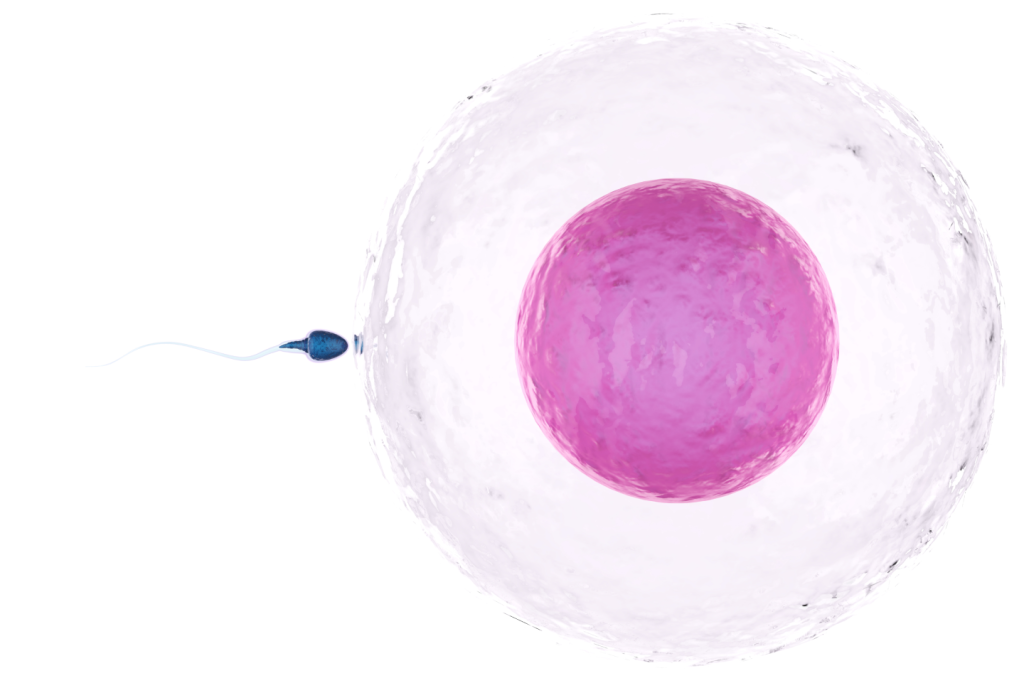

Who should consider donor Embryo?
- Any couple who is facing fertility issues
- A female homosexual couple
- Single mothers
- Single fathers with the help of surrogacy
Frequently Asked Questions
Any woman, from any background, who is willing to help another couple become parents by conceiving their child can become a surrogate. Before becoming a surrogate, all women must meet certain eligibility criteria and must be screened thoroughly before they can be matched with their intended parents. A few common requirements for a woman to become a surrogate are:
- Should be older than 25 years
- Have BMI in normal range i.e. between 22-25
- Should be a non-smoker and non-alcoholic
- Should have a child of her own
- Should not any medical history of pregnancy related illness or complications
- Should be able to travel from appointments
- Clear of any legal convictions
- Should submit complete medical history
- Should undergo a complete background check and in-home assessment
- Should compete a psychological examination and a full medical work up.
Yes. A woman can become a surrogate for a family member or a friend. This process is called as “identified surrogacy”. However, becoming a surrogate for a known to can cause a turmoil of emotional challenges and hence it is essential that every person involved gets a pre-surrogacy counselling and binds themselves with a legal contract despite the amount of trust or concern.
For any woman to become a surrogate for the intended parents it is essential for the two parties to enter into a legally binding contract stating all the terms and conditions specifically. Therefore, the issue of custody after the childbirth is not a problem in cases of surrogacy. And hence, the intended parents are the “legal parents” of the child. They are also the biological parents of the child.
In “gestational surrogacy”, the woman carrying the child is biologically not related to the baby. However, keeping a baby in its womb for 9 months might make them a little attached but the studies based on primary observation suggest that the surrogate pregnancies are not emotionally attached, as it is different from carrying their own children.
It is not very common, but in a few cases, surrogates may suffer in either of these ways. Every pregnancy carries certain amounts of risks to the woman. These risks can be physical or emotional such as postpartum depression. In the process of surrogacy, additional risks might be involved during the process of IVF and in the experience of the surrogate with the intended parents. Fortunately, the chances of surrogates suffering from any physical, mental or emotional distress are very low.
Yes, the intended parents are screened too. This is done to make sure that the intended parents are physically, mentally, emotionally, legally and financially ready to opt for surrogacy. The intended parents are screened with processes that involve a social check, background checks, medical histories and an in-home assessment.

